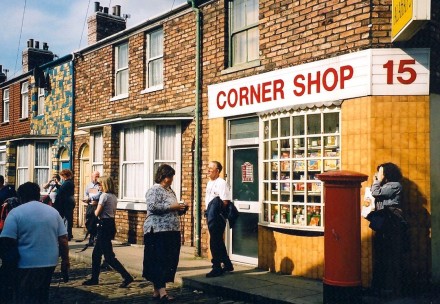In early March, when the UK was gripped in pre-lockdown panic, social media was awash with images of supermarkets with empty shelves and long queues. And then, as we found ourselves confined to our homes, popping to the supermarket whenever we wanted to was no longer something we could take for granted.
Step forward the humble British takeaway. Over the past three months, takeaway owners and their employees have stepped up to the plate (excuse the pun) and done their best to keep the nation fed during this pandemic, as well as supporting thousands of front line workers, often out of their own pocket. However, like so many other businesses within the hospitality sector, many takeaway owners found they had no choice but to close and furlough staff in order to survive.
While restaurants have been shut, loss of revenue has been counterbalanced by the reduction in running costs. With lock-down slowly beginning to ease, takeaways will be looking at how they can fully reopen in the coming months. But they will desperately need capital investment to restart. With reopening comes supplier payments, employee wages, rent bills, and, eventually, tax bills when the business rates holiday ends next year. Taken together, many businesses may see whatever working capital they have run out quickly.
And we all know things are not just going to return to the way they were before. The sector will be facing a prolonged period of reduced footfall. Restaurants and other hospitality businesses will be at the mercy of consumer confidence, which could take months or even years to fully return.
The government’s support for businesses over the past few months has been critical in saving these restaurants, allowing them to stay afloat without having to lay off employees. However, it will all be for nothing if support measures are withdrawn at pace in the coming months and businesses fall by the wayside.
The government has since laid out a timeline to introduce a more flexible Coronavirus Job Retention Scheme (CJRS), which will allow workers to return to work part-time from July without businesses losing out financially. This gradual and cautious approach to withdrawing measures is welcome. However, once the scheme is no longer available, the industry could face a tsunami of job losses without further support.
Continued support on commercial rents will also be crucial. Through this crisis, the majority of landlords and their tenants have worked well together to reach agreements on debt obligations, while the government has already stepped in to protect commercial tenants from any aggressive rent collection and closure measures. This co-operative spirit must endure as businesses reopen and the pressure of startup costs begin to take its toll.
The Coronavirus Business Interruption Loan Scheme (CBILS) was launched with the best of intentions. However, it has not been the lifeline for businesses many would have hoped. Small business owners have faced long delays to loan applications from their banks or complete refusals. Banks are continuing to strangle the scheme at birth with red tape, when they should be offering lower interest loans to support viable businesses. The people running these businesses don’t have banker-sized bonuses or second homes to guarantee against these loans. They are ordinary people providing an important service at a reasonable price – up and down the country. In contrast, the Bounce Back micro-loan scheme is comparatively easy to apply for, but does not offer the same scale of financial support as CBILS.
Two months ago, the chancellor said he would do whatever it takes to support businesses through this. If he’s going to keep that promise, he must make it easier for small business owners, the backbone of our economy, to access support to boost working capital. He must also recognise this crisis does not end when lock-down lifts. For businesses within the hospitality sector, the impacts will continue to play out for months to come. Support on wages, capital and rent is now more important than ever. If things continue as they are, thousands of small businesses will go under.
Ibrahim Dogus is chair of the British Takeaway Campaign





